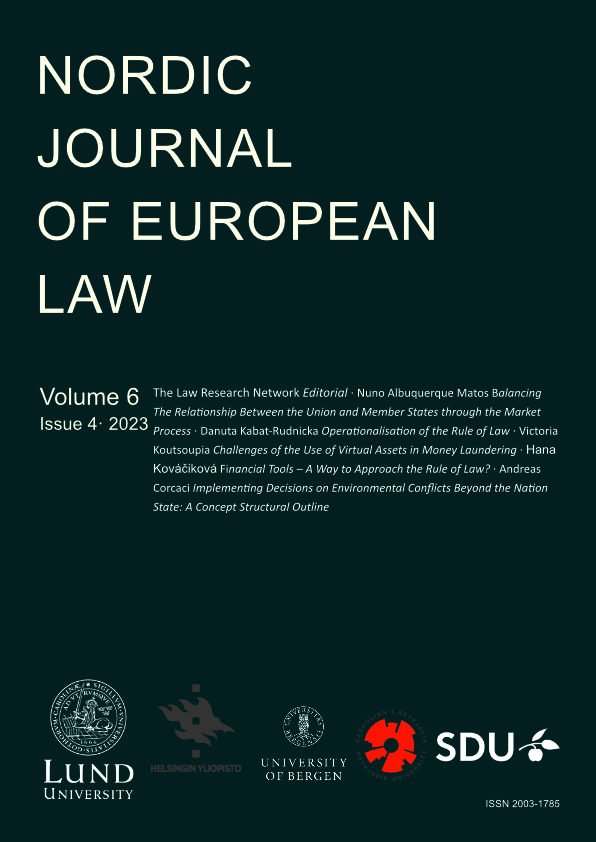Balancing the Relationship Between the Union and Member States through the Market Process
Main Article Content
Abstract
There are mainly two paths to fiscal discipline within a federation or within a monetary union: either through markets or through hierarchy. By establishing the no-bailout clause, the Stability and Growth Pact and the Excessive Deficit Procedure, it was thought that the Maastricht Treaty had chosen market mechanisms to achieve that objective. However, the financial crisis showed the severe shortcomings of the model, marking a shift towards surveillance. This article argues that such failure was not due to the market mechanism but by flawed institutional choices. By establishing a procedure for fiscal adjustment, Member States cast doubt on the credibility of the no-bail out clause and took matters into the political realm. As a result, the political process was at the forefront since inception. There are several ways to deliver a certain social goal. Accordingly, goal choice and institutional choice are inextricably linked because it is the institutional choice which connects goals with their legal or public policy results. Importantly, to choose the best avenue comparative institutional analysis needs to be conducted. After briefly considering the political process, this article purports that other processes should be fully explored. When addressing the financial crisis in multi-level governance, some alternatives have already been employed: state default and supranational bailout. Within the EMU, no State has defaulted on its debt obligations prior to receiving a bailout. However, there is room to explore an option that would be based on market mechanisms with judicial elements while reducing dependence on the political process in the long-term: allowing Member States to orderly default on their debts. The article discusses its main problems, constitutional admissibility and democratic necessity.
Article Details

This work is licensed under a Creative Commons Attribution-NonCommercial-NoDerivatives 4.0 International License.

